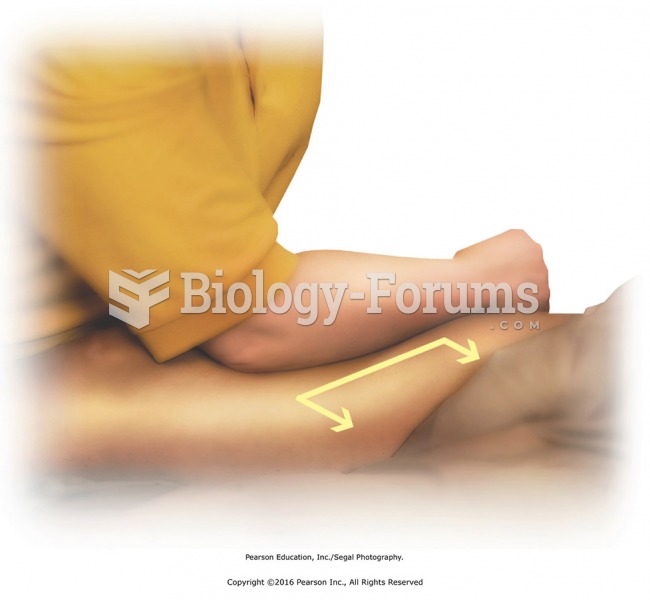This topic contains a solution. Click here to go to the answer
|
|
|
Did you know?
Today, nearly 8 out of 10 pregnant women living with HIV (about 1.1 million), receive antiretrovirals.
Did you know?
Long-term mental and physical effects from substance abuse include: paranoia, psychosis, immune deficiencies, and organ damage.
Did you know?
Vaccines cause herd immunity. If the majority of people in a community have been vaccinated against a disease, an unvaccinated person is less likely to get the disease since others are less likely to become sick from it and spread the disease.
Did you know?
Bacteria have been found alive in a lake buried one half mile under ice in Antarctica.
Did you know?
Not getting enough sleep can greatly weaken the immune system. Lack of sleep makes you more likely to catch a cold, or more difficult to fight off an infection.
 Effleurage clockwise to abdomen. Place palm over palm, and apply effleurage in a circle around the ...
Effleurage clockwise to abdomen. Place palm over palm, and apply effleurage in a circle around the ...
 Direct pressure to deep rotator muscles using the elbow. Use the elbow tip to apply pressure moving ...
Direct pressure to deep rotator muscles using the elbow. Use the elbow tip to apply pressure moving ...





